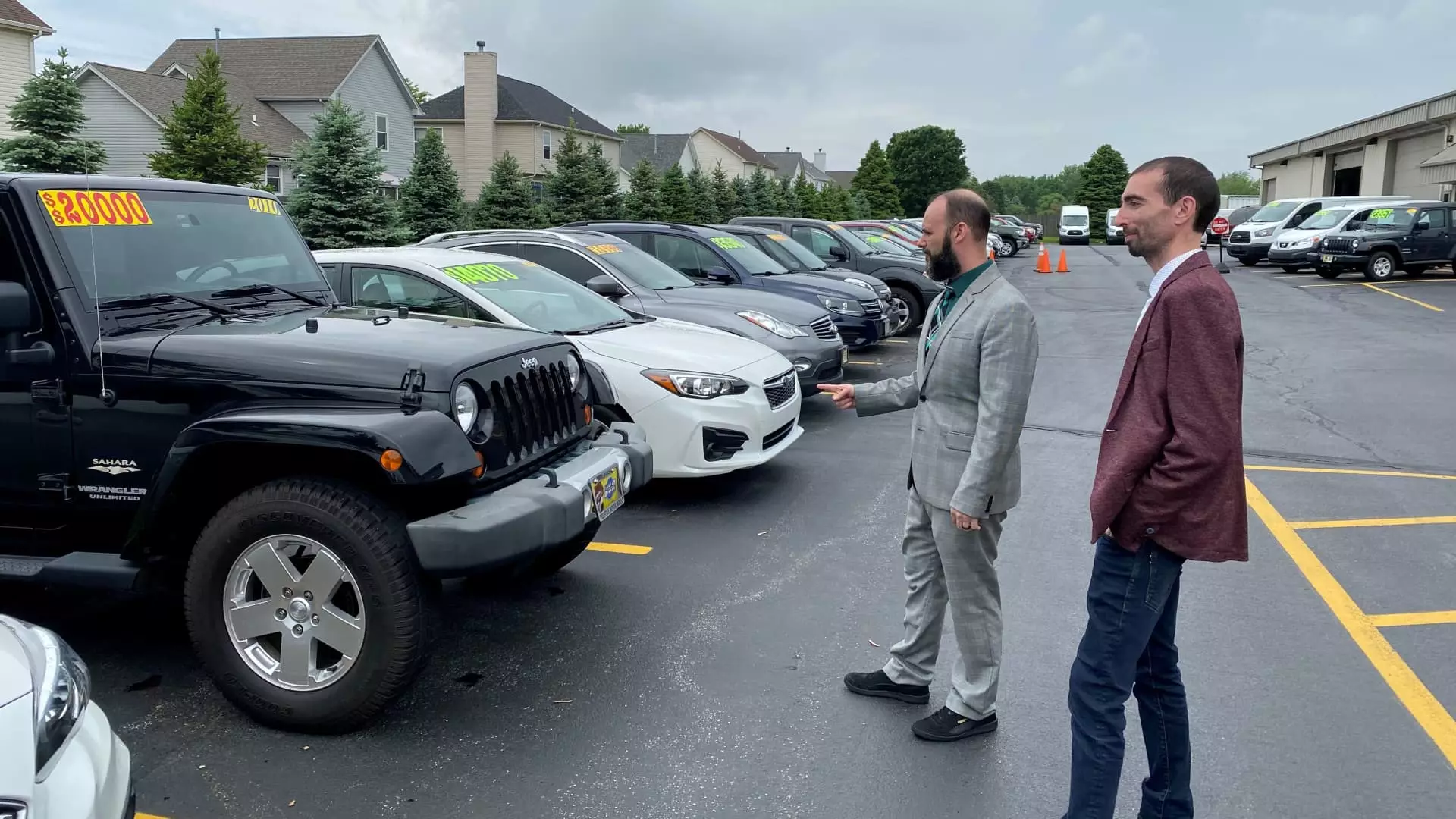As we approach 2025, the landscape for U.S. car dealers is evolving, rife with both opportunity and uncertainty. The sentiment among dealers has been buoyed by the recent political developments, notably the anticipated return of President-elect Donald Trump to the helm of the White House. According to the latest findings published by Cox Automotive, dealers are showing a “renewed optimism” about the automotive retail market. However, this optimism is not without significant caveats, particularly surrounding the future of electric vehicle (EV) sales.
The general confidence of car dealerships, characterized by an increase in the market outlook index from 42 to 54 over the recent quarter, suggests a revitalized expectation for business prospects in the near term. This figure indicates that more dealers foresee favorable market conditions, reflecting a shift from the pessimism that has dominated the sector over the past few years. The index reading of 54 signals that a larger majority of dealers are beginning to believe in a stronger market soon. Yet, despite these improved metrics, it’s essential to contextualize this positivity against the backdrop of ongoing challenges that dealerships are still grappling with.
Interestingly, while the overall dealer sentiment is on the rise, the confidence in the electric vehicle market has sharply declined. Cox’s latest survey highlighted a notable drop in expectations for EV sales, with many dealers predicting a downturn. This dichotomy underscores the simultaneous existence of optimism in traditional vehicle sales compared to a more subdued outlook for electric alternatives.
The decline in enthusiasm about EV sales among dealers is particularly striking, especially as the auto industry transitions toward more sustainable practices. Many dealers are worried about the potential impacts of changing governmental policies under a new administration. There is speculation that diminished federal support for EVs could lead to reduced sales figures, as the current consumer tax credit of up to $7,500—crucial for incentivizing customers—faces an uncertain future. Such a scenario could stifle growth in a market hungry for innovation and environmental responsibility.
Feedback from industry experts, particularly Jonathan Smoke, Cox’s Chief Economist, emphasizes that the vitality of tax incentives is crucial for both new and used EV markets. This highlights a clear dependence on policy, where any withdrawal or weakening of support could reverberate throughout the automotive landscape, leading to reluctance among consumers to purchase these vehicles. The underlying concern here remains whether a Trump administration will prioritize continued funding and promotion of electric transportation, which is essential for the sustainability of both sales and environmental commitments.
Political dynamics appear to be playing a significant role in shaping dealership sentiments. Following the recent November elections, there has been a noticeable decline in the percentage of dealers who feel that political conditions adversely impact their operations, dropping from 44% to 35%. This change may reflect an easing of fears that have dominated the business landscape following earlier political uncertainties. Many dealers seem to be experiencing a more stable environment and perceive these conditions as conducive to better business prospects.
Moreover, the high pricing of both new and used vehicles continues to bolster dealer profitability. Auto dealer stocks have also reflected this buoyancy, with companies like AutoNation and Lithia Motors seeing shares surge by an impressive 15% to 22% within the year, while Group 1 Automotive has outperformed expectations with a staggering 40% increase.
While there’s a promising outlook for U.S. auto dealers as they head into 2025, the prevailing uncertainty around electric vehicle sales should not be overlooked. The duality of optimism and concern captures the essence of the current automotive climate: traditional sales may thrive, but without significant support, the burgeoning EV market might falter. Dealerships must navigate these complexities as they prepare for the upcoming year, while also keeping a watchful eye on how federal policies evolve and influence consumer choice. The interplay between optimism and realism will dictate how effectively the industry adapts to the changes on the horizon.

